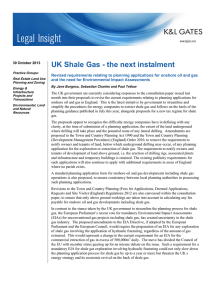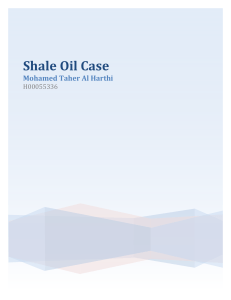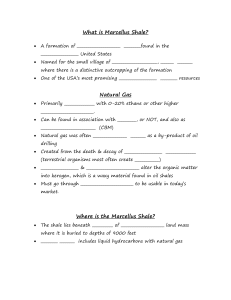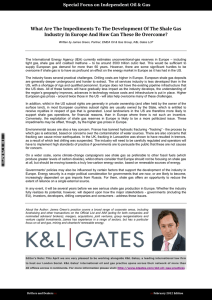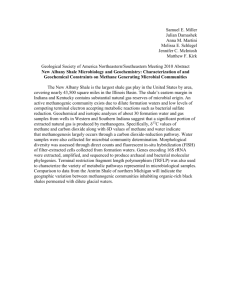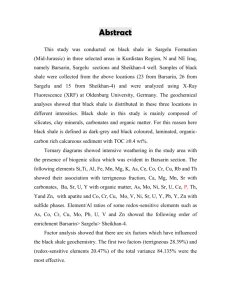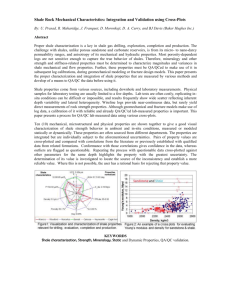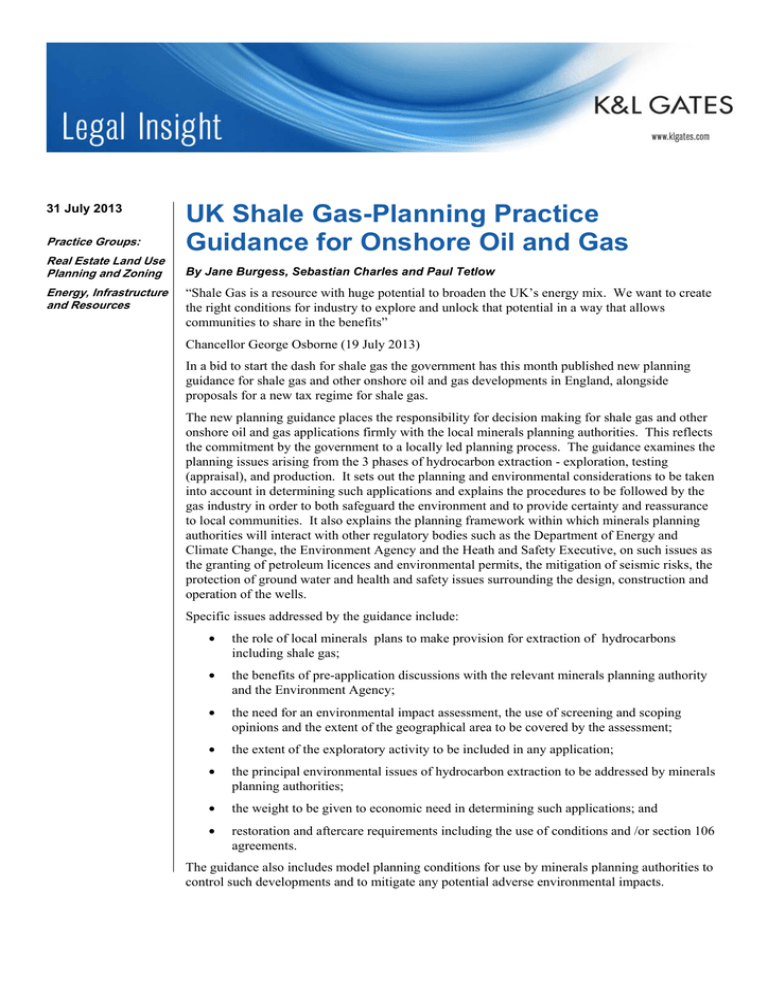
31 July 2013
Practice Groups:
Real Estate Land Use
Planning and Zoning
Energy, Infrastructure
and Resources
UK Shale Gas-Planning Practice
Guidance for Onshore Oil and Gas
By Jane Burgess, Sebastian Charles and Paul Tetlow
“Shale Gas is a resource with huge potential to broaden the UK’s energy mix. We want to create
the right conditions for industry to explore and unlock that potential in a way that allows
communities to share in the benefits”
Chancellor George Osborne (19 July 2013)
In a bid to start the dash for shale gas the government has this month published new planning
guidance for shale gas and other onshore oil and gas developments in England, alongside
proposals for a new tax regime for shale gas.
The new planning guidance places the responsibility for decision making for shale gas and other
onshore oil and gas applications firmly with the local minerals planning authorities. This reflects
the commitment by the government to a locally led planning process. The guidance examines the
planning issues arising from the 3 phases of hydrocarbon extraction - exploration, testing
(appraisal), and production. It sets out the planning and environmental considerations to be taken
into account in determining such applications and explains the procedures to be followed by the
gas industry in order to both safeguard the environment and to provide certainty and reassurance
to local communities. It also explains the planning framework within which minerals planning
authorities will interact with other regulatory bodies such as the Department of Energy and
Climate Change, the Environment Agency and the Heath and Safety Executive, on such issues as
the granting of petroleum licences and environmental permits, the mitigation of seismic risks, the
protection of ground water and health and safety issues surrounding the design, construction and
operation of the wells.
Specific issues addressed by the guidance include:
•
the role of local minerals plans to make provision for extraction of hydrocarbons
including shale gas;
•
the benefits of pre-application discussions with the relevant minerals planning authority
and the Environment Agency;
•
the need for an environmental impact assessment, the use of screening and scoping
opinions and the extent of the geographical area to be covered by the assessment;
•
the extent of the exploratory activity to be included in any application;
•
the principal environmental issues of hydrocarbon extraction to be addressed by minerals
planning authorities;
•
the weight to be given to economic need in determining such applications; and
•
restoration and aftercare requirements including the use of conditions and /or section 106
agreements.
The guidance also includes model planning conditions for use by minerals planning authorities to
control such developments and to mitigate any potential adverse environmental impacts.
UK Shale Gas-Planning Practice Guidance for Onshore
Oil and Gas
It is intended that any specific application requirements for such development and the relevant
fees for such applications will be dealt with in secondary legislation to be published in due course.
The guidance clarifies that shale gas will be dealt with under the current planning regime for
minerals and will not be subject to some new bespoke regime. This seems to be consistent with
the desire of the industry and a vote of confidence by the government that the current regime is
flexible and robust enough to withstand the scrutiny it is likely to come under in the coming
months.
The guidance is complemented by a proposed new tax regime for shale gas introduced by the
Chancellor George Osborne in a recent consultation paper entitled “Harnessing the potential of the
UK’s natural resources - a fiscal regime for shale gas”. The consultation period for this paper runs
until 13 September 2013 and comments are invited from a wide range of stakeholders. It is
intended that any new legislation will be introduced in the Finance Bill 2014.
The government hopes that the combination of these measures will support and encourage
investment in the shale gas industry to enable shale gas to contribute to the UK energy supplies,
assist in the creation of new employment opportunities and deliver increased tax revenues from
the oil and gas industry.
Should you require further information about any of the matters contained within this alert or any
advice on how these reforms may impact on your development proposals please contact the
authors or your usual K&L Gates contacts.
Authors:
Jane Burgess
+44(0)20.7360 8271
jane.burgess@klgates.com
Sebastian Charles
+44(0)20.7360 8205
sebastian.charles@klgates.com
Paul Tetlow
+44(0)20.7360 8101
paul.tetlow@klgates.com
Anchorage Austin Beijing Berlin Boston Brisbane Brussels Charleston Charlotte Chicago Dallas Doha Dubai Fort Worth Frankfurt
Harrisburg Hong Kong Houston London Los Angeles Melbourne Miami Milan Moscow Newark New York Orange County Palo Alto
Paris Perth Pittsburgh Portland Raleigh Research Triangle Park San Diego San Francisco São Paulo Seattle Seoul Shanghai
Singapore Spokane Sydney Taipei Tokyo Warsaw Washington, D.C. Wilmington
K&L Gates practices out of 48 fully integrated offices located in the United States, Asia, Australia, Europe, the
Middle East and South America and represents leading global corporations, growth and middle-market
companies, capital markets participants and entrepreneurs in every major industry group as well as public
sector entities, educational institutions, philanthropic organizations and individuals. For more information
about K&L Gates or its locations, practices and registrations, visit www.klgates.com.
This publication is for informational purposes and does not contain or convey legal advice. The information herein should not be used or relied upon
in regard to any particular facts or circumstances without first consulting a lawyer.
©2013 K&L Gates LLP. All Rights Reserved.
2



